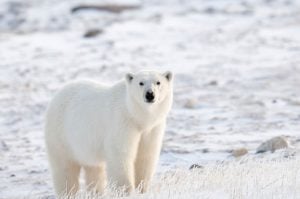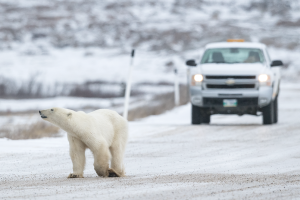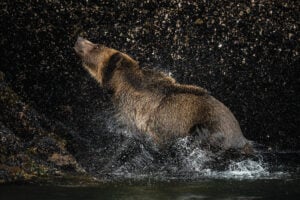Of all the very good reasons to take a trip down the Tatshenshini and Alsek rivers, which run from Yukon through British Columbia and Alaska to the Pacific Coast, surely the most compelling is the chance to see one of the rarest animals on Earth. It’s a bear so uncommon, and about which so little scientific knowledge exists, that researchers are only now unravelling the mysteries around it.
Glacier bears, also known as blue bears, are a rare colour phase of black bear. The bear’s striking pelage ranges in colour from silvery blue-grey to charcoal-grey to black with silvery tips. Even the colour of an individual glacier bear can vary, with lighter tones on the bear’s back and shoulders and dark hair on the legs and belly.
They live in a remote patch of wilderness that includes the extreme northwestern tip of British Columbia, southwestern Yukon and the southeastern coast of Alaska from Juneau to Yakutat. Within this exceptionally rugged terrain of icefields, fiords and the towering St. Elias Mountains, the Tatshenshini and Alsek rivers cut important corridors through the coastal mountain ranges, allowing plant and animal migration from coast to interior.
Some bear experts believe that glacier bears, most commonly observed in Alaska, use the Tatshenshini-Alsek river valley to range inland from the coast.
Canadian River Expeditions runs rafting trips through much of the region, 255 kilometres down the Tatshenshini River from Dalton Post, Yukon, through British Columbia’s Tatshenshini-Alsek Provincial Park to Dry Bay, Alaska. But, admits the company’s owner Neil Hartling, “I’ve not seen a glacier bear in my 25 years on the river.” Nor have four other experienced area guides.




